In an era where rapid responses are often prized over thoughtful reflection, the phrase “Learn To Sit Back And Observe. Not Everything Need – Tymoff” provides a refreshing counterpoint. This approach encourages us to pause and reflect before acting, suggesting that not every situation demands an immediate reaction. In this blog post, we will explore what it means to truly observe rather than react, delve into the benefits of this practice, and provide practical tips for incorporating more observational moments into our daily lives. By embracing a more contemplative approach, we can enhance our understanding of the world around us and improve our interactions within it.
Table of Contents
Understanding the Power of Observation
What Does It Mean “Learn To Sit Back And Observe. Not Everything Need – Tymoff” ?
To “”Learn To Sit Back And Observe. Not Everything Need – Tymoff“” means to take a moment to process events and information before responding. It involves a conscious decision to pause and consider various aspects of a situation, allowing for a more informed and thoughtful reaction. This practice is about cultivating patience and resisting the urge to jump into action without adequate reflection. By doing so, one can make decisions that are not only reactive but also proactive, benefiting from a deeper understanding of the circumstances.
Observing rather than reacting offers significant psychological benefits. It can lead to reduced stress levels, as it prevents the immediate emotional responses that often lead to anxiety and overwhelm. Additionally, this practice enhances mental clarity, making it easier to understand complex situations and identify the best course of action. Studies have shown that individuals who practice observational techniques, such as mindfulness, report higher levels of emotional intelligence and better management of their mental health.
Practical Applications of Observation
“Learn To Sit Back And Observe. Not Everything Need – Tymoff” : In the context of personal relationships, taking time to observe can strengthen bonds and foster deeper connections. By actively listening and paying attention to non-verbal cues, individuals can better understand their partners, friends, or family members. This leads to more empathetic interactions and a greater appreciation for the perspectives of others, ultimately reducing conflicts and enhancing the quality of relationships.
At work, being observant can improve communication and teamwork. By understanding the dynamics of the workplace and the unspoken signals among team members, one can navigate office politics more effectively and contribute to a more positive working environment. Observing also helps in recognizing the strengths and weaknesses within a team, allowing for better project management and delegation of tasks.
Challenges in Practicing Observation
“Learn To Sit Back And Observe. Not Everything Need – Tymoff” : One of the main challenges in practicing observation is the ingrained habit of immediate reaction. Many people find it difficult to hold back their initial responses, especially in high-stress situations. Other obstacles include distractions that can divert attention from observing important details and biases that can cloud judgment and prevent objective observation.
To overcome these challenges, it is crucial to develop self-awareness and practice mindfulness. Techniques such as deep breathing exercises and meditation can help individuals center themselves in the present moment, making it easier to observe without bias or immediate judgment. Training oneself to recognize personal triggers and learning to delay responses can also be effective in cultivating a more observant nature.
Real-Life Success Stories
“Learn To Sit Back And Observe. Not Everything Need – Tymoff” : There are numerous success stories where effective observation has led to remarkable outcomes across various fields. In business, leaders who observe market trends and consumer behavior can anticipate changes and innovate ahead of their competitors. In healthcare, doctors who observe subtle symptoms and patient behaviors are often better at diagnosing and treating illnesses. These examples demonstrate how a well-honed ability to observe can lead to significant professional achievements and breakthroughs.
Tools and Techniques to Enhance Your Observing Skills
“Learn To Sit Back And Observe. Not Everything Need – Tymoff” : Mindfulness and meditation are powerful tools for enhancing observation skills. Regular practice can help individuals learn to quiet the mind and focus their attention on the present moment, which is essential for effective observation. These techniques not only improve one’s ability to notice details but also enhance the overall capacity to remain patient and composed.
Active listening involves fully concentrating on what is being said rather than passively hearing the message of the speaker. Body language reading, on the other hand, refers to interpreting non-verbal cues such as facial expressions, gestures, and posture. Both skills are crucial for understanding underlying messages and emotions, which are often not communicated through words.
The Future of Observational Practices
“Learn To Sit Back And Observe. Not Everything Need – Tymoff” As the world becomes increasingly complex and interconnected, the value of observational skills is likely to grow. Future trends may include greater emphasis on emotional intelligence in workplaces and the integration of observational training in educational curriculums. Technological advancements might also bring new tools and methods to enhance our ability to observe and process information effectively.
Conclusion
“Learn To Sit Back And Observe. Not Everything Need – Tymoff” Observing rather than reacting offers a multitude of benefits, from deeper personal relationships to more effective decision-making in professional settings. By understanding and practicing the art of observation, we can lead more thoughtful, productive, and fulfilling lives.
Read More : A True Relationship Is Two Imperfect People Refusi – Tymoff


